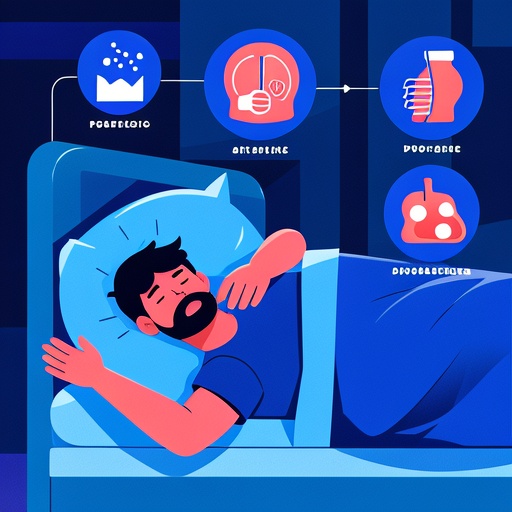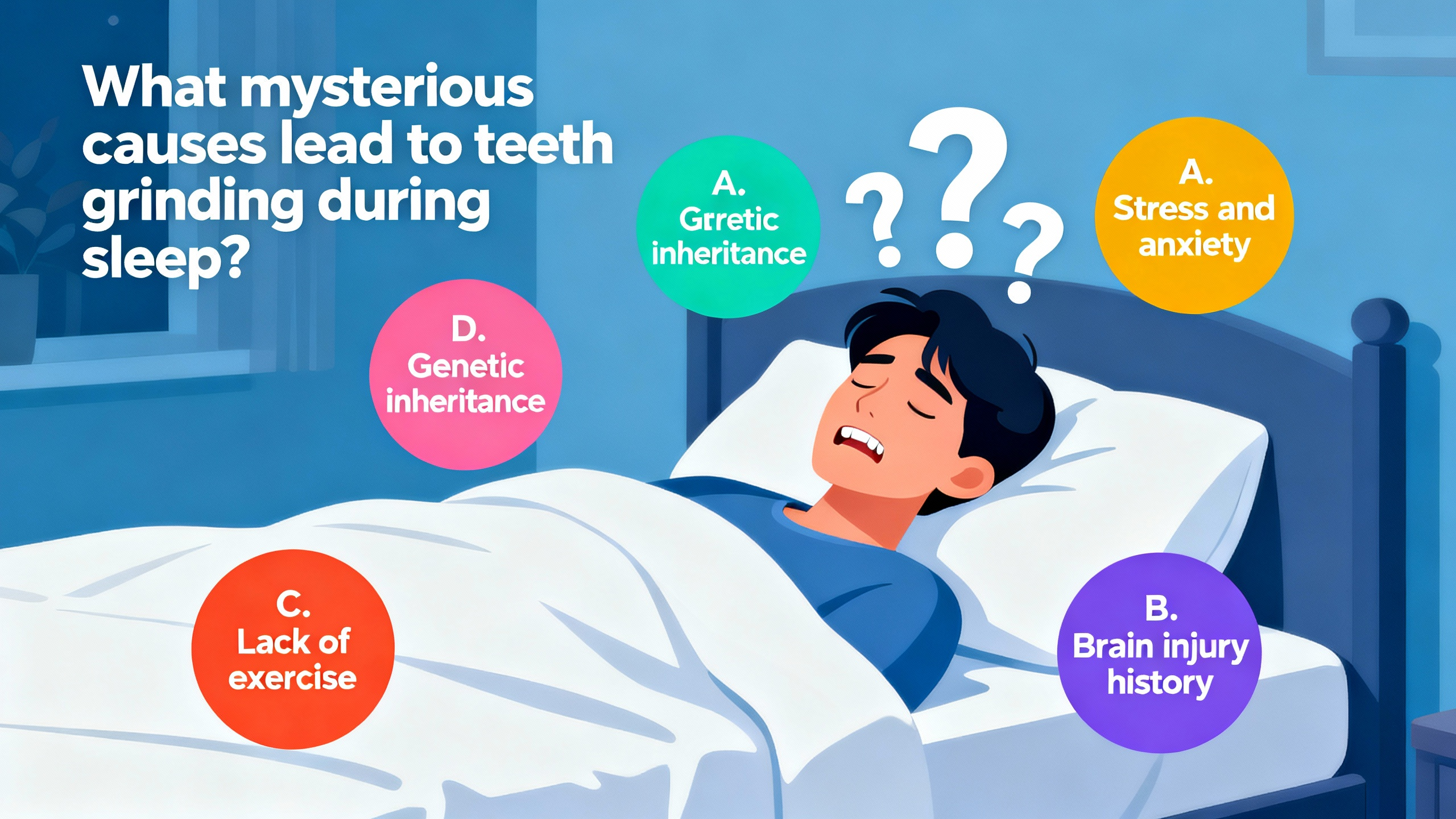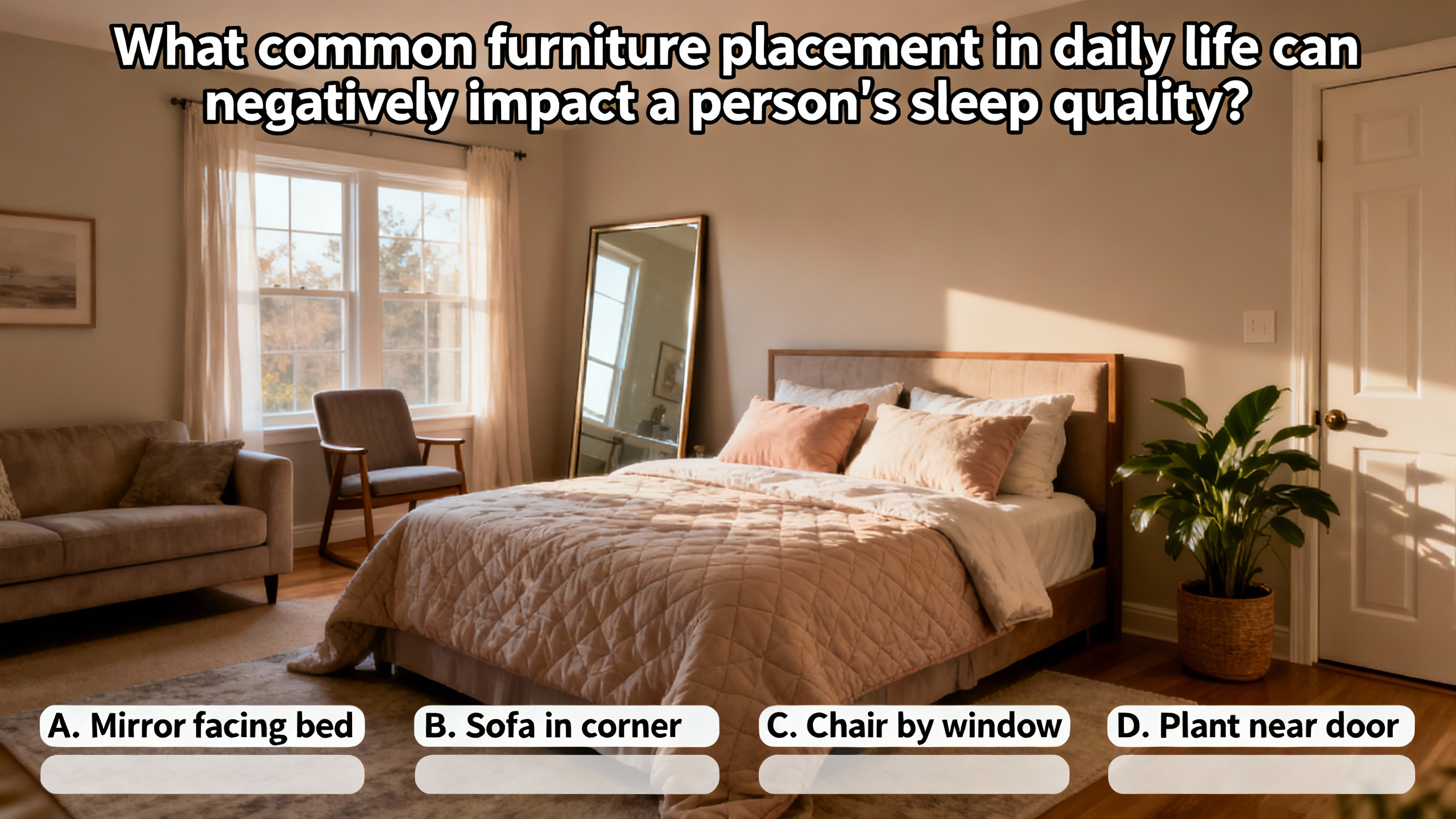Why Some People Have Light Sleep and Are Easily Awakened by Noise
Some people have extremely light sleep, where even the slightest noise can rouse them. This phenomenon can be attributed to a combination of physiological, psychological, and environmental factors. Sleep is a vital part of our daily lives, yet for those with light sleep, this restorative process can be frequently interrupted. Imagine trying to rest peacefully, but the faintest rustle of leaves outside or the ticking of a clock in the room is enough to jolt you awake. This can lead to a feeling of constant tiredness and can have a significant impact on one's overall well - being. 
Physiologically, an individual's nervous system plays a crucial role. Some people are born with a more sensitive nervous system. Their brains are wired in such a way that they process sensory information more acutely. For example, the auditory cortex in their brains may be more reactive to sound stimuli. When a small noise occurs, the neurons in this area quickly transmit signals to other parts of the brain, triggering an arousal response. To understand this better, think of the auditory cortex as a highly - tuned radar. In people with a sensitive nervous system, this radar has a much wider range and is more likely to pick up even the most minor signals.
Additionally, certain medical conditions can also lead to light sleep. Conditions like hyperthyroidism can increase the body's metabolic rate and stimulate the nervous system, making a person more prone to being awakened by noise. When the thyroid gland is overactive, it releases excessive amounts of thyroid hormones. These hormones speed up the body's metabolism, which in turn affects the nervous system. The increased activity in the nervous system makes it more difficult for the body to enter a deep, restful sleep state. Hormonal imbalances, such as fluctuations in cortisol (the stress hormone), can also disrupt the normal sleep cycle and make sleep lighter. Cortisol levels are supposed to be low during sleep, but if they are elevated, it can keep the body in a more alert state. For instance, if a person has a high - stress job and their cortisol levels remain high even at night, their body may be in a constant state of readiness, making them more likely to wake up at the slightest noise. 
Another physiological aspect is the structure of the ear. Some people may have more sensitive ears, with a greater ability to detect a wider range of frequencies. This means that they can pick up on sounds that others might not even notice. For example, the high - pitched whine of an electrical appliance or the soft hum of a refrigerator might be inaudible to most, but for someone with sensitive ears, these sounds can be quite distracting and may wake them up.
Psychologically, stress and anxiety are significant contributors to light sleep. When a person is under a lot of stress, their mind remains in a state of hyper - vigilance even during sleep. They may be subconsciously worried about various aspects of their lives, such as work, relationships, or financial problems. This mental state makes it easier for external noises to break through their sleep. For instance, a person who is constantly worried about missing an important deadline may be more likely to wake up at the slightest noise because their mind is on high alert. Their brain is so focused on the potential threat of not meeting the deadline that it doesn't fully relax during sleep.
Traumatic experiences can also have a long - lasting impact on sleep. People who have experienced trauma may develop post - traumatic stress disorder (PTSD), which often includes symptoms of light sleep and frequent awakenings. For example, a war veteran who has witnessed terrifying events may have flashbacks or nightmares during sleep. These psychological disturbances can make their sleep very light, and any noise can trigger a fear response, causing them to wake up. Moreover, the fear of having another nightmare or flashback can keep them in a state of semi - wakefulness, making them more sensitive to external noises. 
Personality traits can also play a role in light sleep. People who are naturally more anxious or neurotic may be more likely to have light sleep. Their tendency to worry and overthink can carry over into their sleep, making it more difficult for them to achieve a deep, restful state. For example, an individual with an anxious personality may be more likely to ruminate on small details during the day, and this same pattern of thinking can disrupt their sleep at night.
Environment also has an important influence. If a person is not accustomed to their sleep environment, they may sleep more lightly. For example, sleeping in a new place with unfamiliar sounds, smells, and temperatures can disrupt the normal sleep pattern. Even small changes in the environment, like a new type of bedding or a different room layout, can make a person more sensitive to noise. When we sleep in a familiar environment, our brain has learned to filter out the normal background sounds. But in a new place, these sounds are unfamiliar, and our brain is more likely to react to them.
Moreover, long - term exposure to noisy environments can desensitize a person to constant loud noises but make them overly sensitive to sudden, small noises. For example, someone who lives near a busy road may become used to the constant traffic noise but wake up easily to a door creaking or a bird chirping. The constant background noise has trained their brain to ignore the continuous sounds, but the sudden, unexpected noises stand out and can startle them awake. The quality of the air in the sleep environment can also affect sleep. Poor air quality, such as high levels of pollutants or a lack of fresh air, can make a person feel uncomfortable and more likely to wake up.
The lighting in the room can also be a factor. Even small amounts of light can disrupt the body's natural sleep - wake cycle. For example, a streetlight shining through a window or the glow from an electronic device can suppress the production of melatonin, a hormone that regulates sleep. This can lead to lighter sleep and make a person more susceptible to being awakened by noise.
In conclusion, the tendency to have a light sleep and be awakened by small noises is a complex issue influenced by multiple factors related to the body, mind, and environment. Understanding these factors can help individuals take appropriate measures to improve their sleep quality, such as addressing stress through relaxation techniques, treating underlying medical conditions, and creating a more conducive sleep environment. For example, practicing meditation or deep breathing exercises before bed can help reduce stress and anxiety. Seeking medical advice for hormonal imbalances or other medical conditions can also be beneficial. And making simple changes to the sleep environment, like using blackout curtains, a white - noise machine, or a comfortable mattress, can go a long way in improving sleep quality. By taking a comprehensive approach that addresses all these factors, individuals can hope to achieve a more restful and undisturbed sleep.










